NIL
NCAA faces $4 million lawsuit by former player over lost NIL
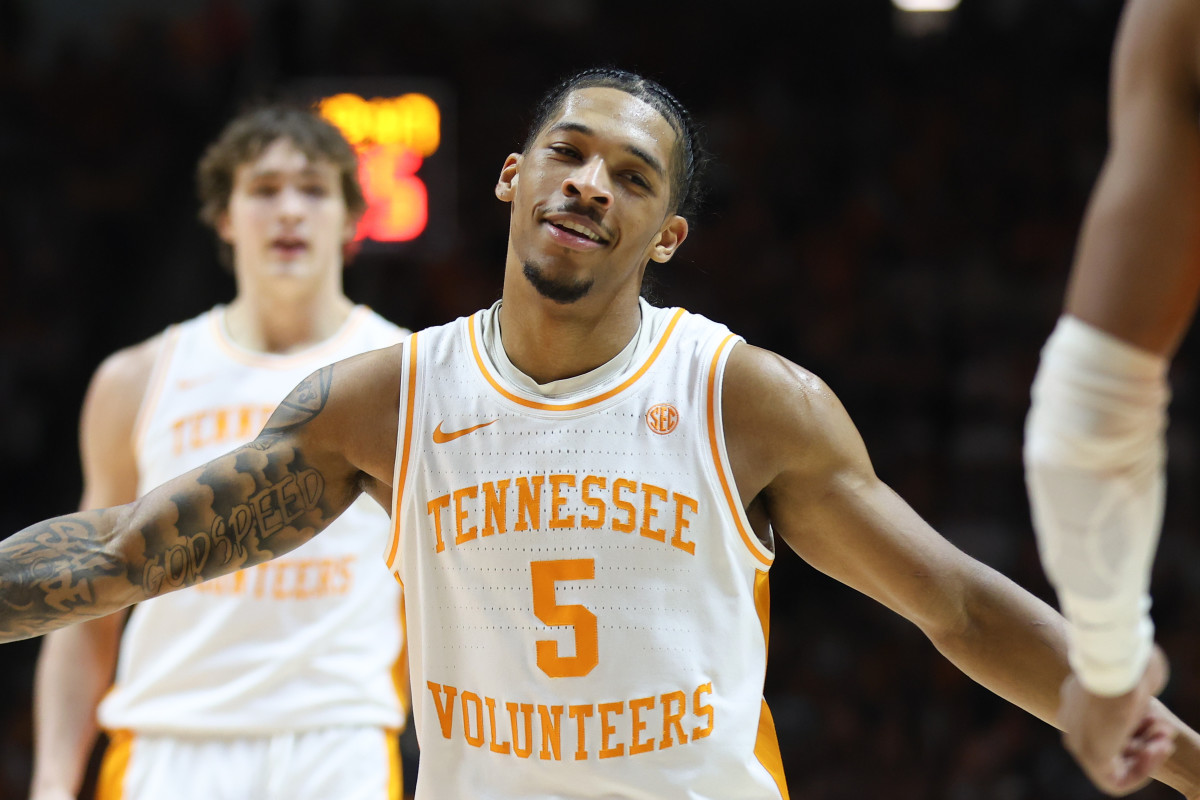
Zakai Zeigler has never backed down on the court. Now, he’s taking his toughest shot yet—this time, at the NCAA.
The former Tennessee Volunteers star is suing college sports’ governing body, challenging a rule that he says unfairly blocks him from returning for a fifth season. The lawsuit, filed Tuesday in the U.S. District Court for the Eastern District of Tennessee, argues that the NCAA’s “Four-Seasons Rule” is not only arbitrary but costly—potentially to the tune of $2 to $4 million in NIL earnings.
“This valuation reflects the market value of an upperclassman with a proven performance record and high visibility,” the complaint reads, citing projections from Spyre Sports Group, Tennessee’s NIL collective.
Advertisement
Zeigler, who averaged 13.6 points and a league-leading 7.4 assists last season, led Tennessee to a second straight Elite Eight. He became the program’s all-time assists leader and the first SEC player ever to log 1,550 points, 700 assists, 350 rebounds, and 250 steals. Despite his accolades, Zeigler didn’t receive an invite to the NBA Draft Combine or G League Elite Camp.

Tennessee Volunteers guard Zakai ZeiglerJordan Prather-Imagn Images
Now, he wants to return to college hoops—and cash in on his peak value.
The suit takes aim at the NCAA’s policy that allows student-athletes five calendar years to play four seasons—unless they redshirt. Zeigler, who never redshirted, argues that this system unfairly penalizes players for choices made by coaches, not students.
Advertisement
“All NCAA athletes should be eligible to compete and earn NIL compensation during each year of the five-year window—not just those selected to redshirt,” the complaint states.
Zeigler is represented by Litson PLLC and Garza Law Firm. The legal team is pushing for an injunction to let him play during the 2025–2026 season while pursuing a graduate degree.
“This is about fairness,” one NIL advisor familiar with the case said. “Zakai isn’t asking for extra eligibility—he’s asking to use the window the NCAA already gives, just like everyone else.”
If the court rules in Zeigler’s favor, the implications could rock the NCAA and redefine the market for upperclassmen athletes overnight.
Advertisement
Related: Boogie Fland shocks college basketball with NIL power move
Related: NFL QB sends strong message after losing NIL millions
NIL
Athletic Director Confident Wyoming is ‘Catching Up’ in NIL Game
LARAMIE — When it comes to the controversial subject of Name, Image and Likeness in college sports, Tom Burman will be the first to tell you Wyoming has been playing catch up.
That doesn’t mean a solution isn’t on the horizon.
“We need to grow it quickly,” the school’s longtime athletics director admitted on Saturday night.

A report by the Cowboy State Daily earlier in the day stated the department is only allocating $1.4 million annually in NIL funds, $800,000 less per year than regional programs Montana and Montana State, which compete in the FCS.
While the latter dollar amount could not be substantiated, Burman said the initial figure for UW is now at $1.5 million, adding that number only illustrates the revenue sharing monies between the school’s two largest income generating programs, football and men’s basketball. An additional $200,000 is being divvied up between women’s basketball, volleyball and wrestling, he added.
“This does not include any third-party NIL dollars or Learfield NIL partnerships, which are likely another $500,000 total,” he continued. “This also does not include Alston Scholarship dollars, which is $1.1 million, and are included as revenue sharing as part of the House Settlement analysis.”
There are other future plans in place to bring in additional revenue, Burman said. including jersey patches, field and court logos and venue naming opportunities.
UNLV, one of the Cowboys’ current Mountain West foes, recently announced a 5-year, $11 million deal to promote a local Las Vegas company on its uniforms in football, men’s and women’s basketball and baseball. That is expected to be approved in August.
Burman said this will happen at UW, but added, “We’re not going to give it away.”
The same can be said for a permanent field sponsor inside War Memorial Stadium.
Ramos Law, a firm based out of Colorado, purchased that space for the Cowboys’ home finale last month against Nevada — the “Josh Allen game” — for a reported $90,000-plus. The company logo was placed at both 25 yards lines.
MORE UW FOOTBALL NEWS VIA 7220SPORTS:
* Burman, UW Athletics Seeking Additional Revenue Streams
* Recruiting, Portal Misses Have Lasting Impact in Laramie
* Injured Wyoming Running Back Says He’s Entering Portal
* Wyoming Inks 20 Freshmen in 2026 Recruiting Class
* Wyoming in the Market for New Offensive Coordinator
* PODCAST: Offseason ‘Rework’ Underway in Laramie
* Running Back Terron Kellman Again Looking for New Home
* Wyoming’s Leading Receiver Entering NCAA Transfer Portal
There are other potential avenues that could help Wyoming gain ground on the competition.
“If we get support from the state — and not a budget cut, also — and continued investment from the private sector, coupled with support from campus, we will be in a good place in short order,” Burman said.
The department earlier this month asked the joint appropriations committee of the Wyoming Legislature for an additional $3 million on top of the annual $11.2 it receives annually through the school’s block grant. The state will also match up to $5 million a year in private donations.
The grand total is just over $19 million.
Though the $3 million, annually, wouldn’t go directly to NIL and revenue sharing, Burman said, it will help UW to handle other escalating costs that have occurred due to inflation and additional costs related to the NCAA House settlement and Mountain West membership changes.
The university is now on the hook for reimbursements to former student-athletes. That number totals $2.8 billion in damages. Over the next 10 years, Burman added, Wyoming will lose funding to the tune of $550,000, annually.
The current media rights deal with the conference, which currently brings in $3.7 million a year, is also likely to take a hit.
San Diego State, Fresno State, Utah State, Boise State and the Cowboys’ Border War rival, Colorado State, are departing in July for the new-look Pac-12. The league is adding UTEP and Northern Illinois, the latter in football only. UC Davis and Grand Canyon have joined on the basketball side. Hawaii is also now a full member.
The department, though, could soon see an influx of cash once the legal battle between the Mountain West and Pac-12 is finalized. Poaching fees and exit fees are at the heart of the litigation. The next hearing in that case is set for Sept. 9.
Donations to the Cowboy Joe Club, the department’s lead fundraising arm, will also open up additional opportunities to retain and lure future student-athletes, Burman added.
“We are starting to see people donate,” he said. “That frees up money for revenue sharing through ticket sales, media rights, corporate dollars, television, etc.
“We are just getting started.”
University of Wyoming’s Top 50 Football Players
The rules are simple: What was the player’s impact while in Laramie? That means NFL stats, draft status or any other accolade earned outside of UW is irrelevant when it comes to this list.
This isn’t a one-man job. This task called for a panel of experts. Joining 7220’s Cody Tucker are Robert Gagliardi, Jared Newland, Ryan Thorburn, and Kevin McKinney.
We all compiled our own list of 50 and let computer averages do the work. Think BCS — only we hope this catalog is fairer.
Gallery Credit: 7220Sports.com
– University of Wyoming’s Top 50 Football Players
NIL
Clemson Fans Want Dabo Swinney Fired Immediately After Bowl Game
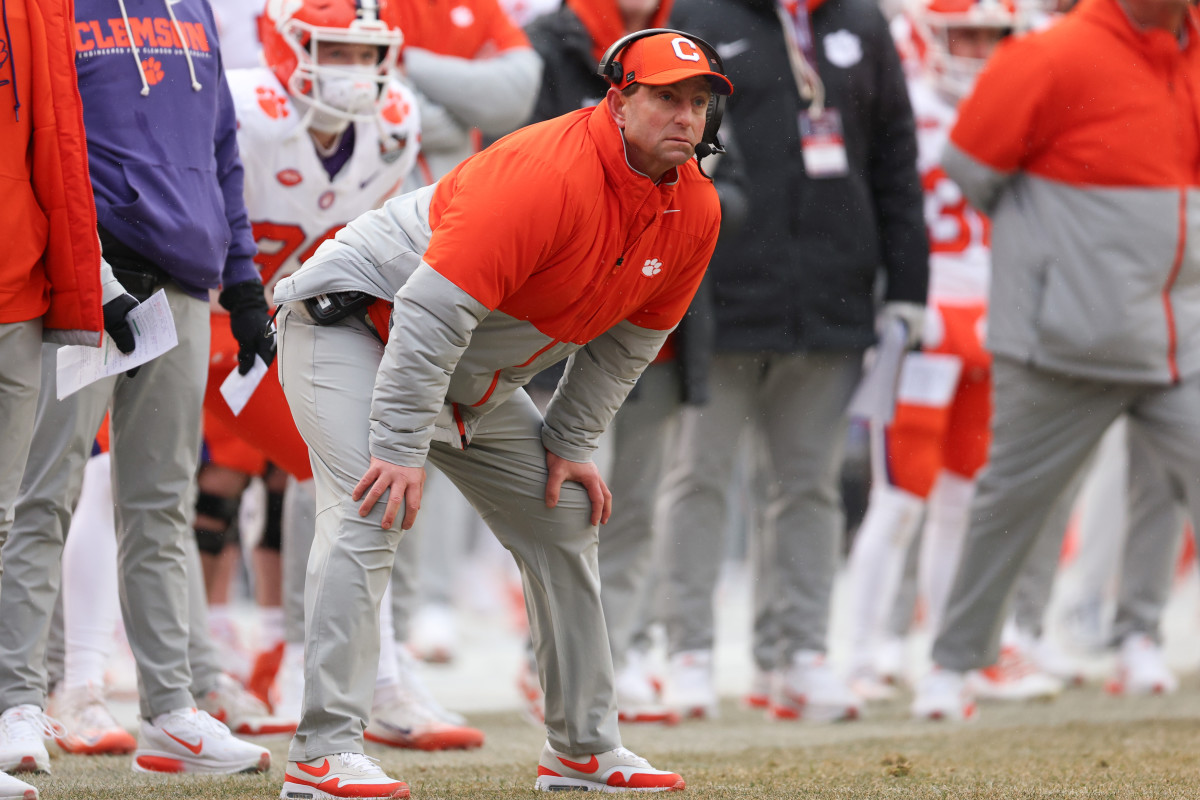
It’s getting hard for Clemson to ignore the downfall of Dabo Swinney.
Prior to the start of the 2025 season, Clemson was a trendy pick to make the national championship game. The program’s hopes of making a run in the College Football Playoff were destroyed once Swinney’s squad fell to 1-3 on Sept. 20. Although the Tigers finished the regular season with a 7-5 record, the reality is they underachieved this year.
Advertisement
As if this season wasn’t brutal enough for Clemson fans, they had to watch their team get dismantled by Penn State in the Bad Boy Mowers Pinstripe Bowl.
Clemson’s offense was neutralized by Penn State’s defense. On the flip side, the Nittany Lions received a sharp performance from quarterback Ethan Grunkemeyer.
Before Penn State even put the finishing touches on its bowl victory over Clemson, people voiced their complaints about Swinney online. Most of them believe he should be fired this offseason.
Advertisement

Nov 14, 2025; Louisville, Kentucky, USA; Clemson Tigers head coach Dabo Swinney talks with the officials during the first half against the Louisville Cardinals at L&N Federal Credit Union Stadium. Mandatory Credit: Jamie Rhodes-Imagn Images
Dabo on the hot seat.
“Fire Dabo, fire the whole staff, cut the entire team. Losing to a piss poor Penn State team is unacceptable,” one fan said.
“Please fire Dabo..it’s time,” a second fan wrote. “I’m sorry but it’s time.”
“Fire Dabo NOW,” a third fan commented.
“Dabo Swinney has stated numerous times that he’s against NIL If he can’t adapt then Clemson needs to fire him,” another fan argued. “I think he’s a great football coach and would have success in the NFL, but the college game is a lot different now.”
Advertisement
Swinney, a two-time national champion, has accomplished remarkable things at Clemson since taking over the program in 2009.
At the end of the day though, Swinney has struggled to adapt in the NIL era of college football.
Should Clemson fire Swinney this offseason?
This story was originally published by The Spun on Dec 27, 2025, where it first appeared in the College Football section. Add The Spun as a Preferred Source by clicking here.
NIL
Oregon QB Austin Novosad plans to enter NCAA Transfer Portal
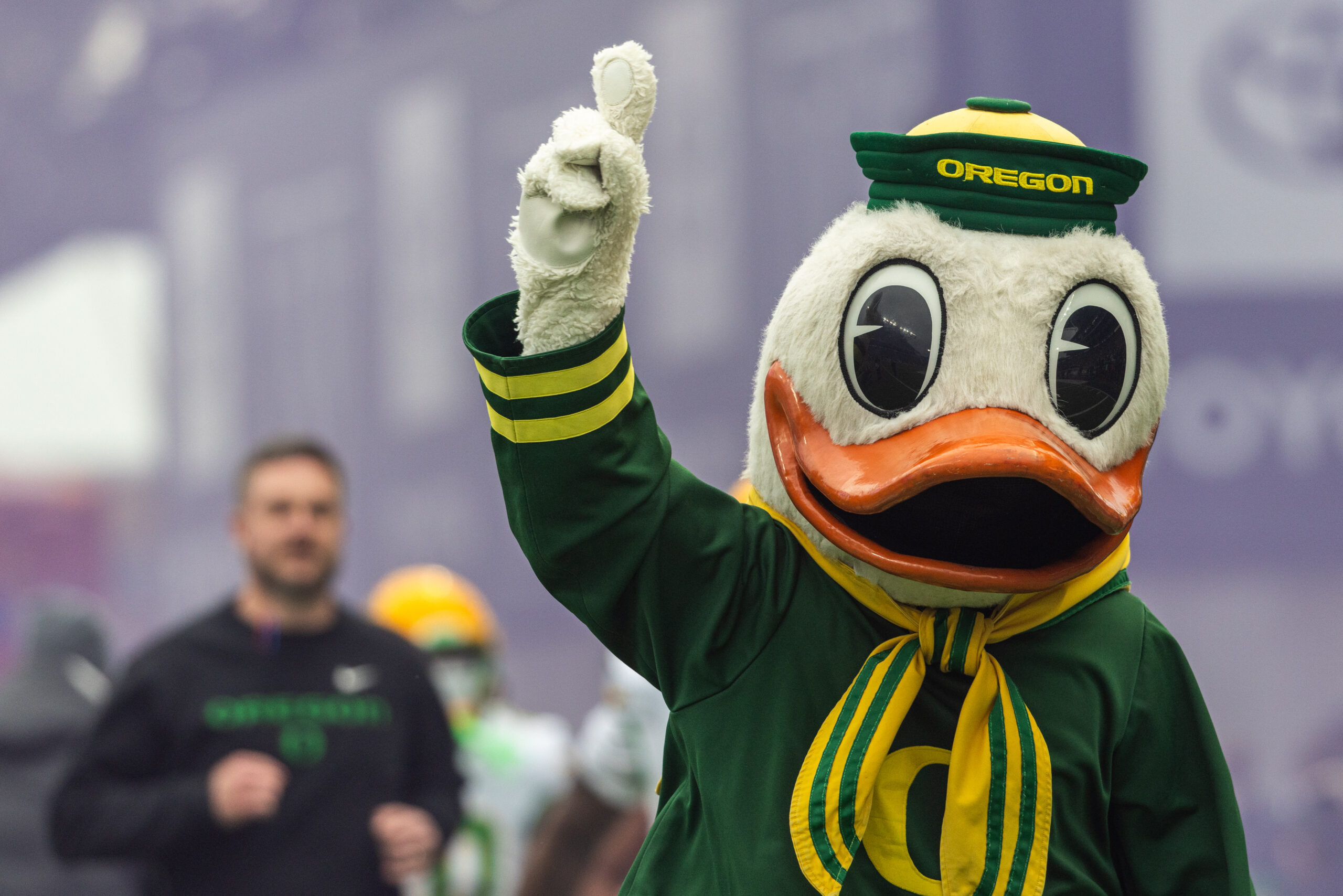
Oregon redshirt sophomore quarterback Austin Novosad plans to enter the NCAA transfer portal, according to a report from ESPN’s Pete Thamel on Saturday afternoon.
Novosad, a native of Dripping Springs, Texas, spent three seasons at Oregon and appeared in seven games. During that span, he completed 12 of 15 passes for 99 yards with no touchdowns or interceptions.
Novosad waited his turn in Eugene throughout that time. He learned behind Bo Nix during his true freshman season in 2023 and Dillon Gabriel in 2024. Novosad remained with the program losing the spring quarterback competition to Dante Moore, and played very little during his third season with the program.
A member of the 2023 recruiting class, he was the No. 113 overall prospect and the No. 10 quarterback in the cycle, per the Rivals Industry Ranking, a proprietary algorithm that compiles ratings and rankings from all of the primary recruiting media services. He was the No. 21 player from the state of Texas that year.
Novosad is set to have have two years of eligibility at the next school he attends. He used a redshirt during his true freshman season.
As a high schooler, he completed 563-of-873 passes (64.5%) for 8,983 yards and 114 touchdowns compared to 18 interceptions during a three-year career at the varsity level. He had three games where he finished with seven touchdowns, as well as one six-touchdown game, and six separate games where he threw five touchdowns. Novosad was recruited by the likes of Ohio State, Texas A&M and Baylor, among others. A one-time Baylor commit, he flipped late to the Ducks before National Signing Day.
More on the NCAA Transfer Portal
Once the NCAA transfer portal opens on Jan. 2, players can officially enter their names in the NCAA transfer portal and go on to initiate contact with their preferred schools. The portal will be open for 15 days and close on Jan. 16.
Notably, players who are on teams competing in the national championship game are allowed five extra days to make their portal decision. The College Football Playoff championship game will be played on Jan. 19, so the players on those teams will be allowed until Jan. 24 to enter the portal and choose their next school.
To keep up with the latest players on the move, check out On3’s Transfer Portal wire. The On3 Transfer Portal Instagram account and Twitter account are excellent resources to stay up to date with the latest moves.
NIL
No. 1 college football team linked to 1,700-yard RB in transfer portal
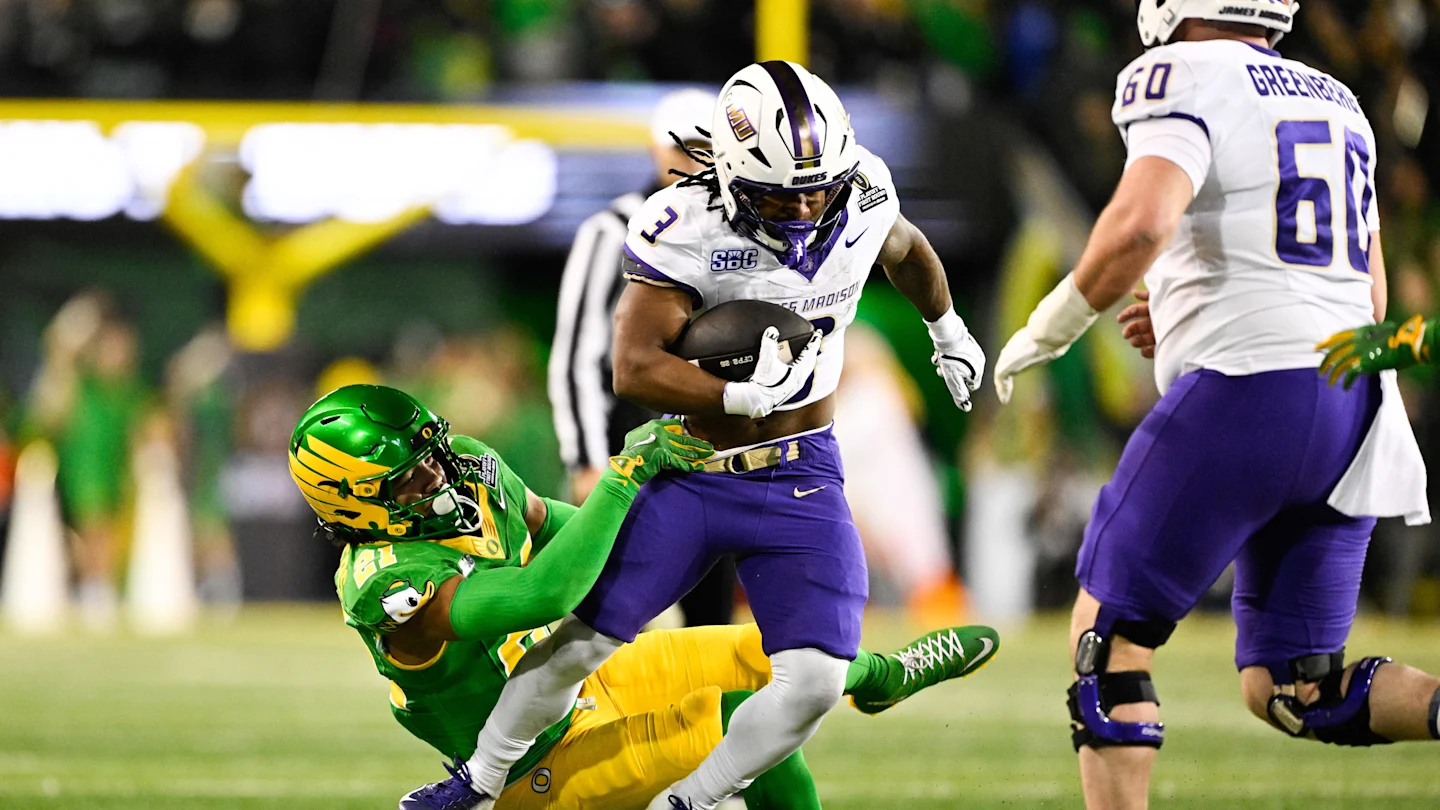
James Madison completed a historic 2025 campaign, capturing the Sun Belt title and earning the program’s first-ever College Football Playoff berth before a first-round loss to Oregon.
Even with the postseason loss, the Dukes finished ranked inside the top 25 and reinforced their status as one of the fastest-rising programs in the FBS after transitioning from the FCS in 2022.
The team’s biggest contributor was junior running back Wayne Knight.
Across the season, he totaled 1,373 rushing yards on 207 carries (6.6 yards per carry) with nine rushing touchdowns and added 40 receptions for 397 receiving yards, producing 1,770 all-purpose yards.
Knight posted multiple 100-yard rushing games, set a school record with 234 all-purpose yards in the Sun Belt championship (including a 212-yard rushing effort), became a Paul Hornung Award finalist, earned first-team All–Sun Belt honors, and garnered All-American recognition from select outlets.
However, on Saturday, Knight announced his intention to enter the NCAA transfer portal.
Early reporting has already linked him to several Power Five programs, with Yahoo Sports explicitly naming No. 1-ranked Indiana as a logical fit.

Knight redshirted in 2023 before establishing himself as James Madison’s primary back in 2024, totaling 449 rushing yards and two rushing touchdowns while adding 137 receiving yards and two receiving scores ahead of his breakout 2025 campaign.
Knight signed with James Madison in December 2021, choosing the Dukes over more than a dozen other scholarship offers, including Delaware, Navy, Brown, Howard, and Maine.
Hoosiers head coach Curt Cignetti is the central link in the Knight to Indiana storyline.
Before taking the Indiana job in 2024, Cignetti led James Madison to an 8–3 record in 2022 and an 11–1 finish in 2023, reaching as high as No. 18 in the AP poll.
Knight played under Cignetti during both seasons and was originally recruited to JMU by him.
For Cignetti and Indiana, adding a high-production, battle-tested running back would bolster depth and special teams for a program now competing at the highest level.
Read More at College Football HQ
- $2.4 million QB emerges as transfer portal candidate for SEC program
- Major college football program ‘expected to hire’ 66-year-old head coach
- College Football Playoff team loses player to transfer portal
- College Football Playoff team loses starting QB to transfer portal
NIL
Kyle Whittingham releases first public statement after Michigan hire
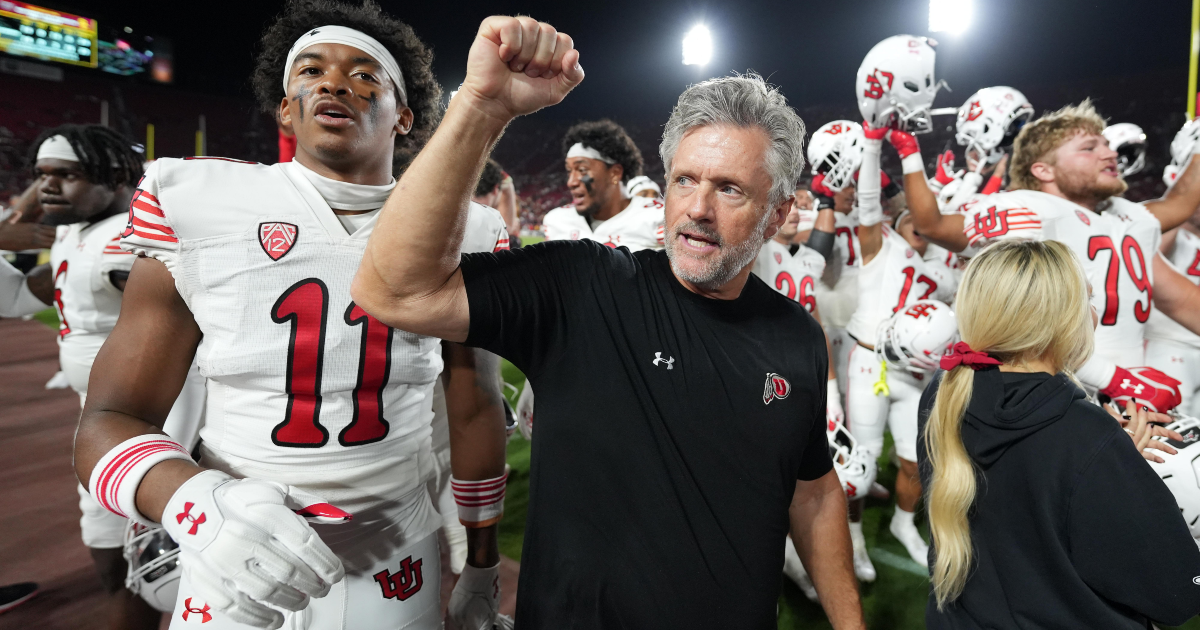
Late Friday night, Michigan made it official. Kyle Whittingham will take over as the next Wolverines head coach, and he released his first public statement.
News broke earlier Friday that Whittingham would replace Sherrone Moore as Michigan head coach. He previously announced his plans to step down as Utah head coach after a decorated run, becoming the winningest coach in program history. Michigan confirmed he is signing a five-year contract.
In Friday’s announcement, Whittingham and athletics director Warde Manuel released statements. Whittingham pointed to the tradition in Ann Arbor and high standard as he takes over the program.
“We are honored to lead the outstanding student-athletes, coaches, and staff who represent Michigan Football each day,” Whittingham said in a statement. “Michigan is synonymous with tradition and excellence – both on the field and beyond – and our entire program is committed to upholding those values while striving for greatness together.
“My family and I are thrilled to join the University of Michigan community, and we look forward to helping our players grow, develop, and reach their highest potential – on the gridiron, in the classroom, and as leaders. It’s a privilege to be part of something that inspires pride in every Wolverine fan. Go Blue!”
Whittingham replaced Urban Meyer as Utah head coach in 2005 and amassed a 177-88 overall record at the helm – the most wins in Utes history. He initially joined the program in 1994, starting out as defensive line coach ad becoming the Utes’ defensive coordinator in 1995. When Meyer left for Florida in 2005, Whittingham took over as head coach.
Although he announced he’d step down as Utah coach, Whittingham made it clear he wasn’t necessarily done coaching. Now, he’ll prepare to head to Ann Arbor and take over a Michigan team which underwent a major shakeup this month.
“Kyle Whittingham is a well-respected and highly successful head coach who is widely recognized as a leader of exceptional character and principled leadership,” Manuel said in a statement. “Throughout our search, he consistently demonstrated the qualities we value at Michigan: vision, resilience, and the ability to build and sustain championship-caliber teams.
“Kyle brings not only a proven track record of success, but also a commitment to creating a program rooted in toughness, physicality, discipline and respect – where student-athletes and coaches represent the university with distinction both on and off the field. We are excited to welcome Kyle to the University of Michigan family as he takes the helm of our football program.”
NIL
Why does Snoop Dogg have his own college football bowl game? What to know
Dec. 27, 2025, 6:01 a.m. ET
D-O-Double G is back for his second year hosting a college football bowl game.
In what was one of the more distinct bowl experiences last season, Snoop Dogg’s eponymously named Snoop Dogg Arizona Bowl is set for its second edition on Saturday, Dec. 27 between the Miami (Ohio) RedHawks and Fresno State Bulldogs inside Arizona Stadium in Tucson, Arizona.
The Snoop Dogg Arizona Bowl is the second main sporting event that Snoop Dogg will be a part of this week, as he performed during halftime of Game 2 of the Netflix-NFL’s Christmas doubleheader between the Minnesota Vikings and Detroit Lions.
Here’s what to know on how Snoop Dogg came to have his own college football bowl game:
How did Snoop Dogg get his own college football bowl game?
Snoop Dogg signed a partnership deal with the Arizona Bowl — founded by the Arizona Sports and Entertainment Commission in 2015 — to be the bowl game’s title and presenting sponsor.
As part of his multi-year sponsorship deal, which was signed in May 2024, Snoop Dogg’s alcoholic beverage — Gin & Juice by Dre and Snoop — serve as the presenting sponsor of the bowl game as well.
“College football fans are exhausted by the talk around NIL, conference realignment, coach movement, transfer portal and super conferences. So it is time we get back to the roots of college football, when it was focused on the colleges, the players, the competition, the community, the fan experience, and the pageantry,” Snoop Dogg said in a video posted on his personal X (formerly Twitter) when he announced his partnership in 2024. “…It’s only fitting that I step up and help this thing right. I’m ready to bring the juice back to college football.”
Snoop Dogg isn’t the first celebrity to be a presenting sponsor of a college football bowl game. Comedian Jimmy Kimmel, host of ABC’s “Jimmy Kimmel Live,” used to be the sponsor of the LA Bowl.
Snoop Dogg was heavily involved with the game and corresponding events in last year’s inaugural bowl game, even interviewing Miami (Ohio) coach Chuck Martin at halftime live on The CW Network.
The 2025 Snoop Dogg Arizona Bowl marks the second consecutive trip for Miami (Ohio) to Tucson, Arizona for the bowl game.
“We couldn’t be more excited to go back to Arizona,” Martin said at a media availability on Monday, Dec. 8. “… Where do you get to go to a bowl (game) and you get to be around for five minutes (with) one of the biggest icons in the history of the world (in Snoop Dogg)?”
Added Martin: “We were dying to get back there and we can’t wait to get back there.”
Who is competing in the Snoop Dogg Arizona Bowl 2025?
Miami (Ohio) and Fresno State are competing in the 2025 Snoop Dogg Arizona Bowl. It’s the second consecutive season the RedHawks will play in the game.
Where is the Snoop Dogg Arizona Bowl?
- Location: Arizona Stadium (Tucson, Ariz.)
The Snoop Dogg Arizona Bowl will once again take place at Arizona Stadium, the home of the Big 12 Conference’s University of Arizona Wildcats, in Tucson, Arizona.
Snoop Dogg Arizona Bowl time today
- Date: Saturday, Dec. 27
- Time: 4:30 p.m. ET (2:30 p.m. MT)
Miami (Ohio) and Fresno State will kick off at 4:30 p.m. ET (2:30 p.m. local time) on Saturday, Dec. 27.
-

 Motorsports3 weeks ago
Motorsports3 weeks agoSoundGear Named Entitlement Sponsor of Spears CARS Tour Southwest Opener
-

 Motorsports3 weeks ago
Motorsports3 weeks agoDonny Schatz finds new home for 2026, inks full-time deal with CJB Motorsports – InForum
-
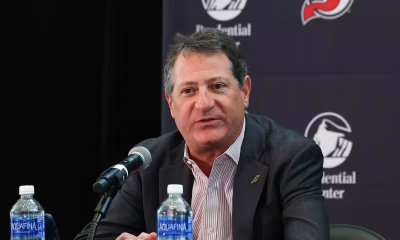
 Rec Sports3 weeks ago
Rec Sports3 weeks agoDavid Blitzer, Harris Blitzer Sports & Entertainment
-

 Motorsports3 weeks ago
Motorsports3 weeks agoRick Ware Racing switching to Chevrolet for 2026
-

 NIL2 weeks ago
NIL2 weeks agoDeSantis Talks College Football, Calls for Reforms to NIL and Transfer Portal · The Floridian
-

 Sports2 weeks ago
Sports2 weeks ago#11 Volleyball Practices, Then Meets Media Prior to #2 Kentucky Match
-

 Motorsports2 weeks ago
Motorsports2 weeks agoSunoco to sponsor No. 8 Ganassi Honda IndyCar in multi-year deal
-
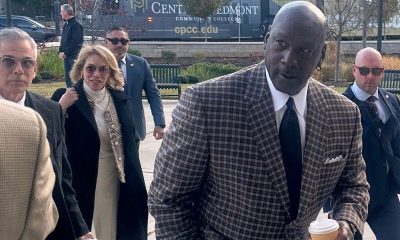
 Motorsports3 weeks ago
Motorsports3 weeks agoNASCAR owes $364.7M to teams in antitrust case
-
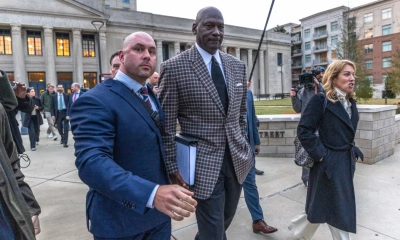
 Motorsports2 weeks ago
Motorsports2 weeks agoNascar legal saga ends as 23XI, Front Row secure settlement
-
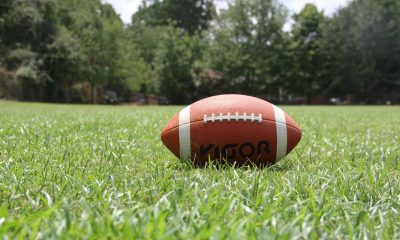
 Rec Sports3 weeks ago
Rec Sports3 weeks agoWhy the Texas Sport for Healing Fund Should Return – The Daily Texan
































